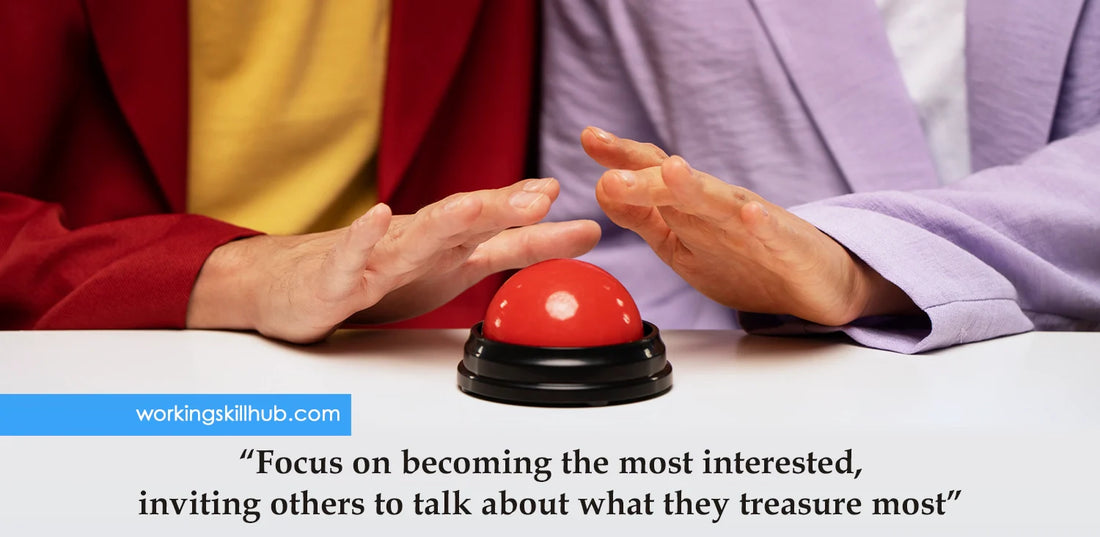The Dead End of Shallow Questions
- "Where do you work?"
- "What college did you attend?"
- "Where do you live?"
The Switch: Reframing for Vulnerability
|
Shallow/Factual Question
|
Open/Deep Question (Invites Vulnerability)
|
|
"Where do you work?"
|
"What’s the best part of your job?"
|
|
"What college did you attend?"
|
"What was your favorite part of college?"
|
|
"Where do you live?"
|
"What do you like about where you live?"
|
|
"Are you glad you went to law school?"
|
"Are you glad you went to law school?" (This asks for a judgment/reflection, inviting a deeper reply)
|
These open questions ask about someone’s values, beliefs, judgments, or experiences. They make emotional replies easier and beg the questioner to reciprocate and share their own feelings. Asking about deep topics—such as values, beliefs, or experiences—is easier than you might think, and people are almost always happy to have been asked such a meaningful question.
The Importance of Follow-Up Questions and Rapport
- Signal Engagement: They show that you are listening and want to know more. Exclusive attention to the person who is speaking is incredibly flattering.
- Facilitate Reciprocity: They make it easier for the conversation to flow back and forth. For example, after someone discloses an experience, you can reciprocate by sharing your own emotions or a related experience. When you respond to the other person's "Inner Infant," you signal, "I think you are very, very special".
- Encourage Self-Disclosure: They push the speaker to elaborate on their interests and accomplishments. You are essentially encouraging others to talk about themselves.


